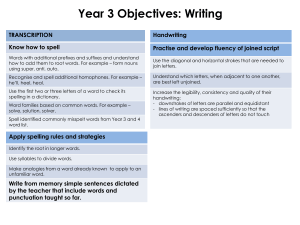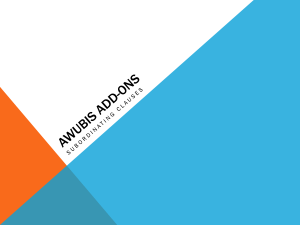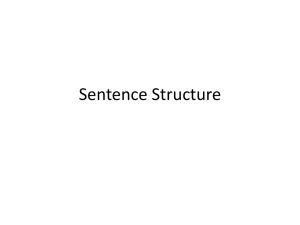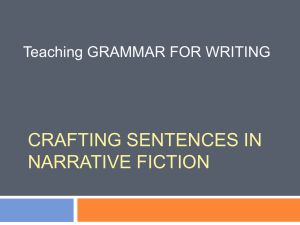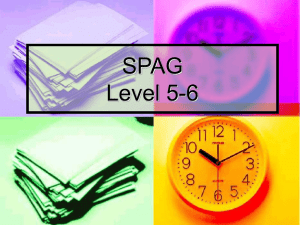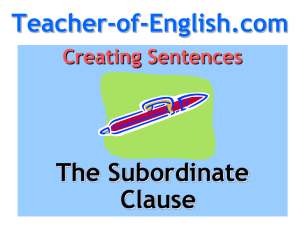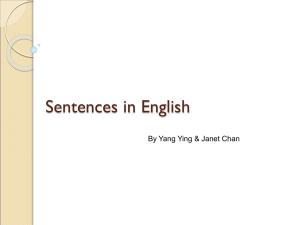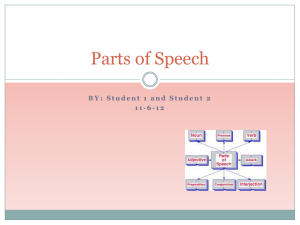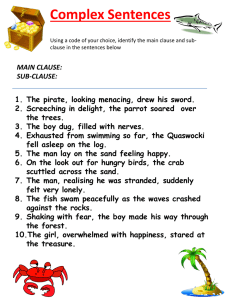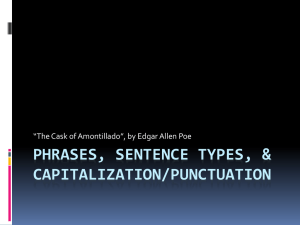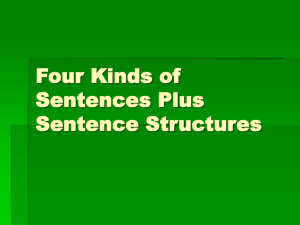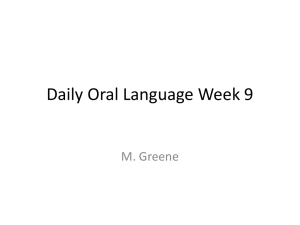Robyn`s Sentence Posters
advertisement
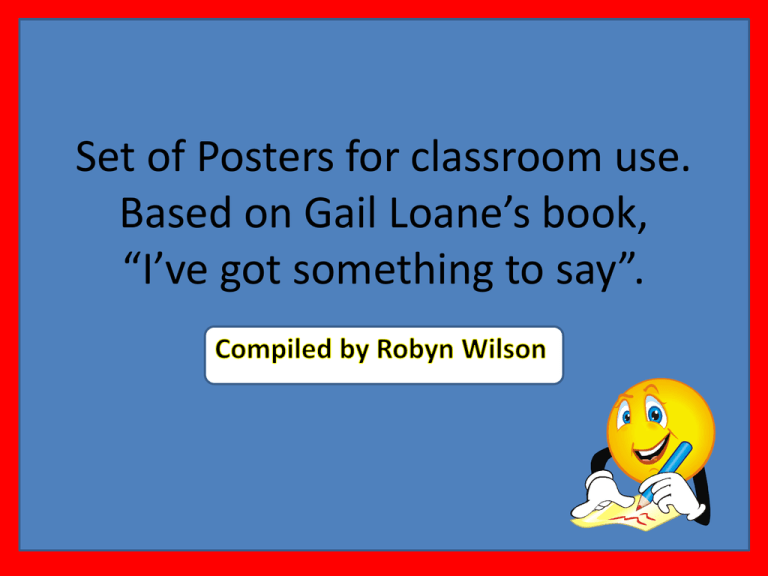
Set of Posters for classroom use. Based on Gail Loane’s book, “I’ve got something to say”. What is a Sentence? • A sentence is a group of words which makes sense on its own. • Sentences can have different purposes. • They can be structured as statements, commands, questions or explanations. Statements Sentences that convey information. e.g. This is a book about ladybirds. Commands Sentences that give orders or requests e.g. Read this book Questions Sentences that require an answer e.g. Have you read this book? Exclamations Sentences that express strong feelings e.g. This is the best book I have ever read! A Simple Sentence... Consists of one clause, which is a group of words containing a subject and a verb. e.g. The boy Subject rode verb his bike. object A Simple Sentence...(2) You can add any number of descriptors to this sentence, but it is still a simple sentence: The small, curly-haired boy adjectives noun (subject) enthusiastically rode his shiny new bike adverb verb adjectives noun on the footpath after breakfast. adverbial phrase (where) adverbial phrase (when). Despite all the added description the sentence still has only one subject and one verb. It is still a simple sentence. A Compound Sentence You can join two or more simple sentences with co-ordinating conjunctions, to make a compound sentence. Jack was a chef. He made a cake. Jack was a chef and he made a cake. Jack was a chef. He specialised in baking. He made a cake. Jack was a chef and he specialised in baking and he made a cake. Each part of the compound sentence is a main clause. We can say that each clause can stand alone. When we can join clauses of equal weight, the conjunctions we use are coordinating conjunctions. Coordinating conjunctions for Compound Sentences because and so however but therefore Complex Sentences In Complex sentences, there is one main clause, and one or more subordinate clauses: Jack made cakes Main clause When? because he was a chef subordinate clause (adverbial clauseanswers the questions How? Where? Or Why) who had specialised in baking. Subordinate clause (adjectival clause- tells us More about the noun and often begins with who,which,that or whom.) Complex Sentences (2) An adverbial clause answers the questions How? When? Where? Or Why? An adjectival clause often begins with who, which, that or whom, and tells us more about the noun. Complex Sentences (3) Each clause contains a verb The subordinate clause depends on the main clause-it cannot stand alone. When we join a main clause to a subordinate clause, we use a subordinating conjunction: after, although, as, when, while, until, because, before, if, since Or a relative pronoun: whom, who, which, that, whose, whomever, whichever, whatever Complex Sentences (4) A phrase is a group of related words that does not stand on its own and does not contain a verb. It is not a complete sentence. We can use phrases instead of nouns, adjectives and adverbs. The chef baked a cake as quickly as possible. adverbial phrase (how) The chef with the tall hat baked a cake. adjectival phrase All the chefs in the hotel baked a cake. noun phrase Reminders Effective writers combine the use of all types and forms of sentences, deliberately, for different purposes and with different effects. • A simple sentence can be powerful, when a strong verb is used: He struggled up the mountain. • A strong verb often has more impact than adding verbs: The bull charged across the field. The bull ran very quickly across the field. Reminders (2) • A sentence is not necessarily improved by adding lots of descriptors: The small, curly-haired boy enthusiastically rode his shiny new bike on the footpath after breakfast. • Specific nouns in a sentence often add more impact than a list of adjectives: The tall, lovely, old, gracious tree was shedding its leaves. The oak was shedding its leaves. • A variety of sentence length, sentence structure and sentence beginnings will make for more effective writing.
